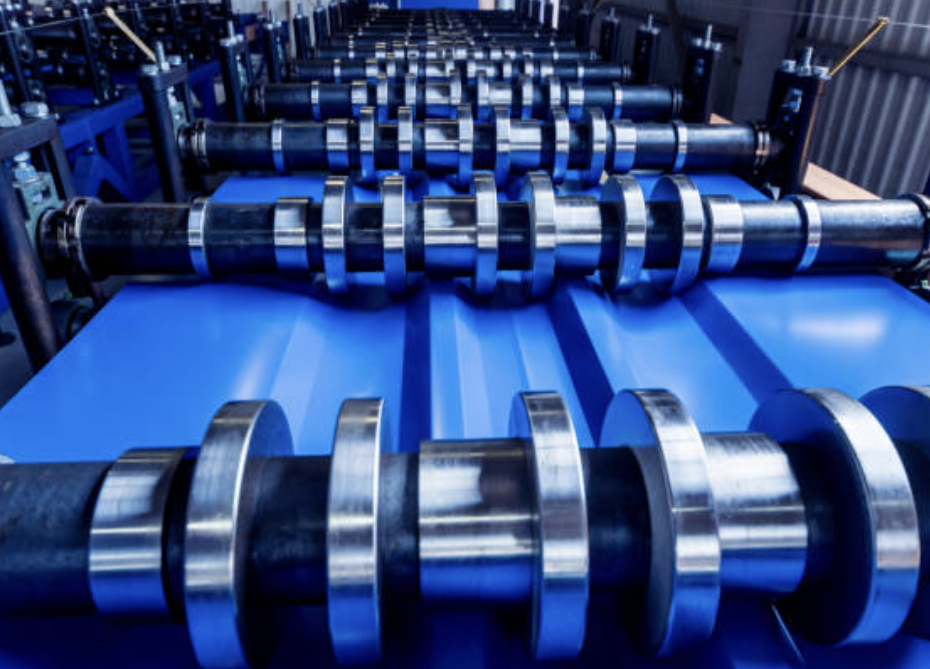
Posted on Thursday, October 31, 2024
For Hungarian manufacturers using roll forming machines, European Union (EU) regulations shape the way machinery is designed, operated, and maintained. These regulations, particularly the EU Machinery Directive, provide safety, health, and environmental standards that help ensure machinery is safe for operators and sustainable for the environment. Compliance with these standards can seem complex, but understanding and adhering to them can lead to long-term benefits, including smoother access to EU markets and enhanced operational credibility.
In this article, we will delve into the EU regulations that impact roll forming machines and what Hungarian businesses need to keep in mind to stay compliant and competitive.
EU machinery regulations are designed to protect operators and the environment while maintaining an efficient industrial sector. The EU Machinery Directive (2006/42/EC) is the primary regulation for industrial machinery, setting requirements for the design, maintenance, and safety of equipment used in all EU countries, including Hungary. In the coming years, an update to this directive, expected around 2025, may further impact how Hungarian companies utilize machinery like roll forming machines.
To enter the EU market, all machines must comply with these directives, typically demonstrated by affixing the CE (Conformité Européenne) marking. This mark shows that the machine meets EU safety, health, and environmental protection requirements. Let’s explore the specific aspects of the Machinery Directive and other relevant regulations that impact roll forming machines.
Compliance requires businesses to periodically update their machines to meet the latest EU standards. Regular inspections and audits are essential to identify any updates needed to keep machines safe and efficient. In Hungary, companies can work with EU-certified inspectors to conduct compliance checks, enabling them to proactively make adjustments to remain within regulatory requirements.
A significant aspect of compliance with EU standards involves training employees to operate machinery safely. This is especially important for smaller businesses in Hungary that may not have robust safety protocols in place. Training programs should cover safe machine operation, hazard awareness, and emergency procedures, ensuring all workers understand and adhere to EU safety standards.
Hungarian businesses sourcing new roll forming machines should consider factors such as energy efficiency, noise emissions, and eco-friendly features. Selecting CE-marked equipment is vital, as it demonstrates compliance and allows seamless use within the EU. Buyers should collaborate with manufacturers or suppliers to confirm that machines meet current EU standards, especially if they are imported from outside the EU.
For Hungarian businesses in the roll forming industry, navigating EU regulations may seem challenging, but it’s essential for operational success and market expansion. Proactive compliance helps ensure worker safety, environmental sustainability, and access to new opportunities within the EU.
Here are some action steps to get started:
By keeping up with EU regulations and understanding how they impact roll forming machine usage, Hungarian businesses can maintain operational excellence, prioritize worker safety, and leverage new opportunities within the EU market.

Used Purlin Roll Forming Machines for Sale Worldwide
Posted on Sunday, January 25, 2026
Pre-Owned Roll Forming Machines for Purlin & Structural Steel Profiles

Used Roof Panel Roll Forming Machines for Sale Worldwide
Posted on Sunday, January 25, 2026
Pre-Owned Roll Forming Machines for Roofing Panel Production

Used Roll Forming Machines for Sale Worldwide
Posted on Tuesday, January 20, 2026
Pre-Owned Roll Forming Machines with Inspection, Verification & Global Support

Steel Coil Supply for Roll Forming Machines Worldwide
Posted on Tuesday, January 20, 2026
Reliable Steel Coil Supply for Roll Forming, Fabrication & Manufacturing Applications
Copyright 2026 © Machine Matcher.